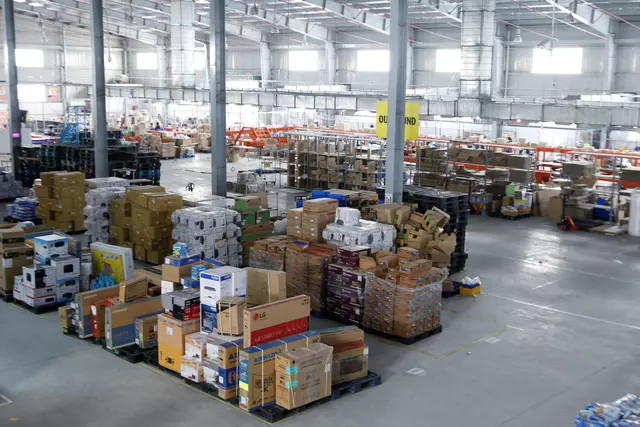
Chinese goods have been flooding the Vietnamese market for many years. They reach every market, supermarket and family. Household-use products, from toilet cleaners to dishcloths to children’s toys are mostly made in China.
Nguyen Van Hai, who owns a big base depot of Chinese goods located in Cau Giay district in Hanoi, said that in January - April 2022, Vietnamese consumed Chinese goods in big quantities, despite Covid-19. But the situation has changed since early May.
Household-use products imported from China remain largely unsold. Hai said he has sold only VND2 billion out of the VND10 billion worth of products which arrived on May 5. He is going to receive another batch of goods, worth VND7 billion, in the next few days.
Minh, a sales officer, confirmed that sales went very well in the months from October 2021 to April 2022, but slowed down recently. In order to clear stocks, Minh has asked the depot owner to lower selling prices.
“There is a sales limit for every sales officer, depending on the number of working years and capability. After selling products within our limits, we were idle as we were not allowed to sell the products allocated to other people. My limit was VND4 billion a month and I could obtain revenue after 15 days. But since May, only VND2 billion worth of products have been sold,” she explained.
Many other depot owners have complained that they have tens of billions of dong worth of unsold products. “I have VND13 billion worth of products, but I can sell VND1 million a day only,” a depot owner said.
To ease reliance on base depots, retailers contact suppliers in China to place orders rather than do this via depot owners. In early May, when China began allowing clearance of goods, Chinese household-use products began flooding the market. As a result of mass imports, sales have been going very slowly since then.
Because of the oversupply, some wholesalers are selling products at a loss of 20 percent. Some who had to borrow money to import goods from China for domestic sale now sell at a loss of up to 40 percent, to get money to pay debts.
According to Luong Manh Thang, the owner of a base depot in Yen Nghia, in Hanoi, the current price war offers a great opportunity for small sales agents to obtain market share from big depots and wholesalers.
Meanwhile, many big wholesalers believe it is the time to increase their influence in the market, so they are willing to sell goods at the lowest possible prices.
Thang said there are tens of base depots in Hanoi which import household-use products from China for domestic distribution. These include a few large depots which stock up to VND200 billion worth of products. Smaller depots stock VND10 billion or tens of billions of dong.
Big depots cover the entire market throughout the country. Many first-class sales agents buy goods from the depots. Meanwhile, smaller depots are struggling for bigger market share.
“Therefore, smaller depots now sell goods at a loss to scramble for sales agents they still cannot access,” Thang explained. “They even take a risk when spending tens of billions of dong to collect inventories from depots with weak financial capability and they will sell the products later, when the market heats up again. They even try to enter the markets they could not reach before,” he said.
Ngoc Cuong